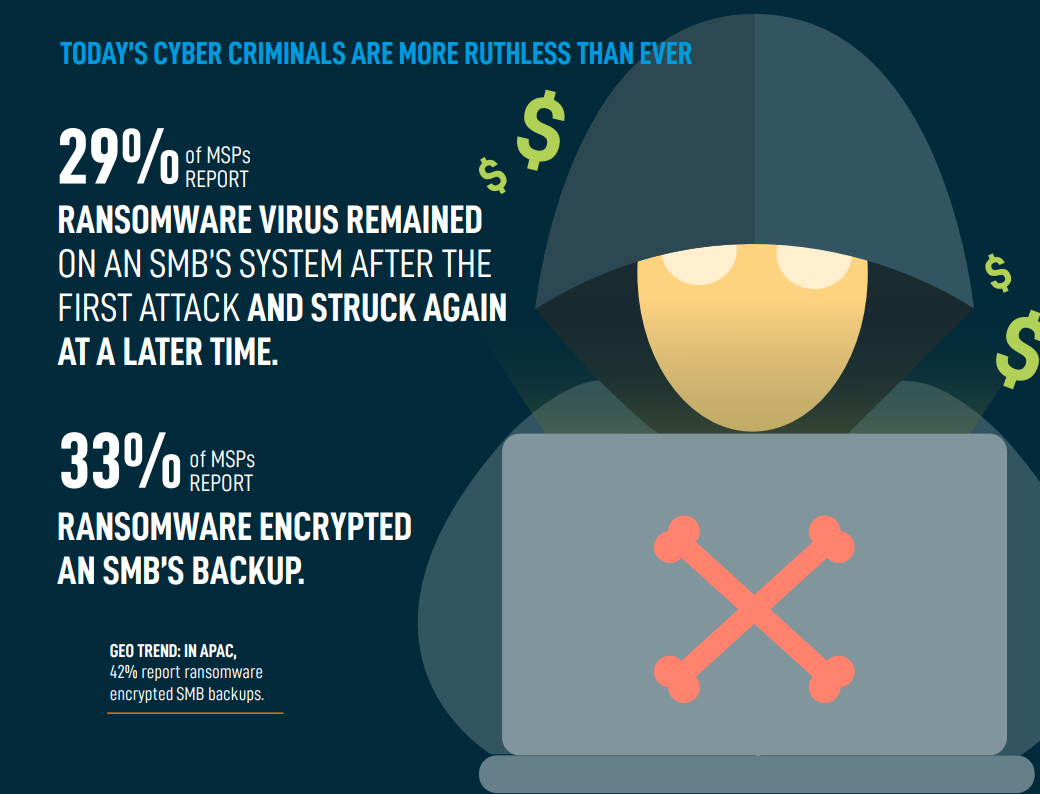
In today's digital landscape, the threat of ransomware looms large for businesses of all sizes. The impact of a successful attack can be devastating, leading to significant data loss, operational disruptions, and financial losses. This article explores both the critical steps to remediate a ransomware attack and proactive measures small and medium businesses (SMEs) can implement to prevent such incidents.
Remediation Strategies for Ransomware Attacks
-
Isolation and Containment
The moment a ransomware attack is detected, it's crucial to isolate the affected systems or devices from the network. This prevents the malware from spreading further and causing additional damage. This isolation step is fundamental to stopping the attack in its tracks.
-
Identify the Ransomware Variant
Knowing the specific ransomware variant is vital, as different strains may have different decryption methods available. Tools and resources may be available to assist in identifying the variant, which can inform the remediation process.
-
Report to Authorities
Reporting the attack to law enforcement agencies can be instrumental in tracking down cybercriminals and preventing future attacks. Many countries have dedicated agencies or cybercrime units equipped to handle such incidents.
-
Restore from Backups
Having up-to-date and secure backups is one of the most effective remediation measures. Restoring data from a clean backup ensures that critical information is recovered, and business operations can resume with minimal downtime.
-
Engage a Cybersecurity Expert
Bringing in a cybersecurity expert or a Managed IT Services Provider (MSP) with expertise in ransomware attacks is advisable. They can provide invaluable insights, conduct a thorough forensic analysis, and help fortify defenses to prevent future attacks.
Proactive Solutions for Ransomware Prevention
-
Employee Training and Awareness
A well-informed workforce is the first line of defense against ransomware. Training employees to recognize phishing emails, suspicious links, and social engineering tactics can prevent malicious payloads from infiltrating the network.
-
Advanced Endpoint Protection
Implementing robust endpoint protection solutions that include features like behavior-based threat detection, application whitelisting, and real-time monitoring can significantly reduce the risk of ransomware infections.
-
Regular Patching and Updates
Keeping all software and applications up-to-date with the latest security patches is critical. Cybercriminals often exploit known vulnerabilities, so staying current on updates can prevent these avenues of attack.
-
Network Segmentation
Segregating network resources limits the potential impact of a ransomware attack. Even if one segment is compromised, it reduces the ability of the malware to spread to other parts of the network.
-
Data Encryption and Backup Policies
Encrypting sensitive data and implementing robust backup policies ensure that even in the event of a successful attack, data remains protected and recoverable.
As the threat of ransomware continues to loom over businesses, it's imperative to be prepared and proactive. By employing a comprehensive remediation strategy and adopting preventive measures, small and medium enterprises (SMEs) can significantly fortify their defenses against these cyber threats. Investing in employee training, advanced endpoint protection, regular updates, network segmentation, and robust backup policies are all pivotal steps in securing your business against this pervasive menace. Moreover, partnering with a trusted Managed IT Services Provider like LINC Project can further bolster your security posture. With LINC Project's cutting-edge security solutions, including behavior-based threat detection and real-time monitoring, SMEs can rest assured knowing they have a dedicated ally in safeguarding their operations against ransomware attacks. Remember, being proactive in prevention is the first and most crucial line of defense in the ever-evolving landscape of cybersecurity.
Ludovic Levivier
Founder & CEO, LINC Project, INC. a Managed Service Provider in New York and San Francisco



.png?width=306&height=50&name=Logo_width.jpg(2).png)


